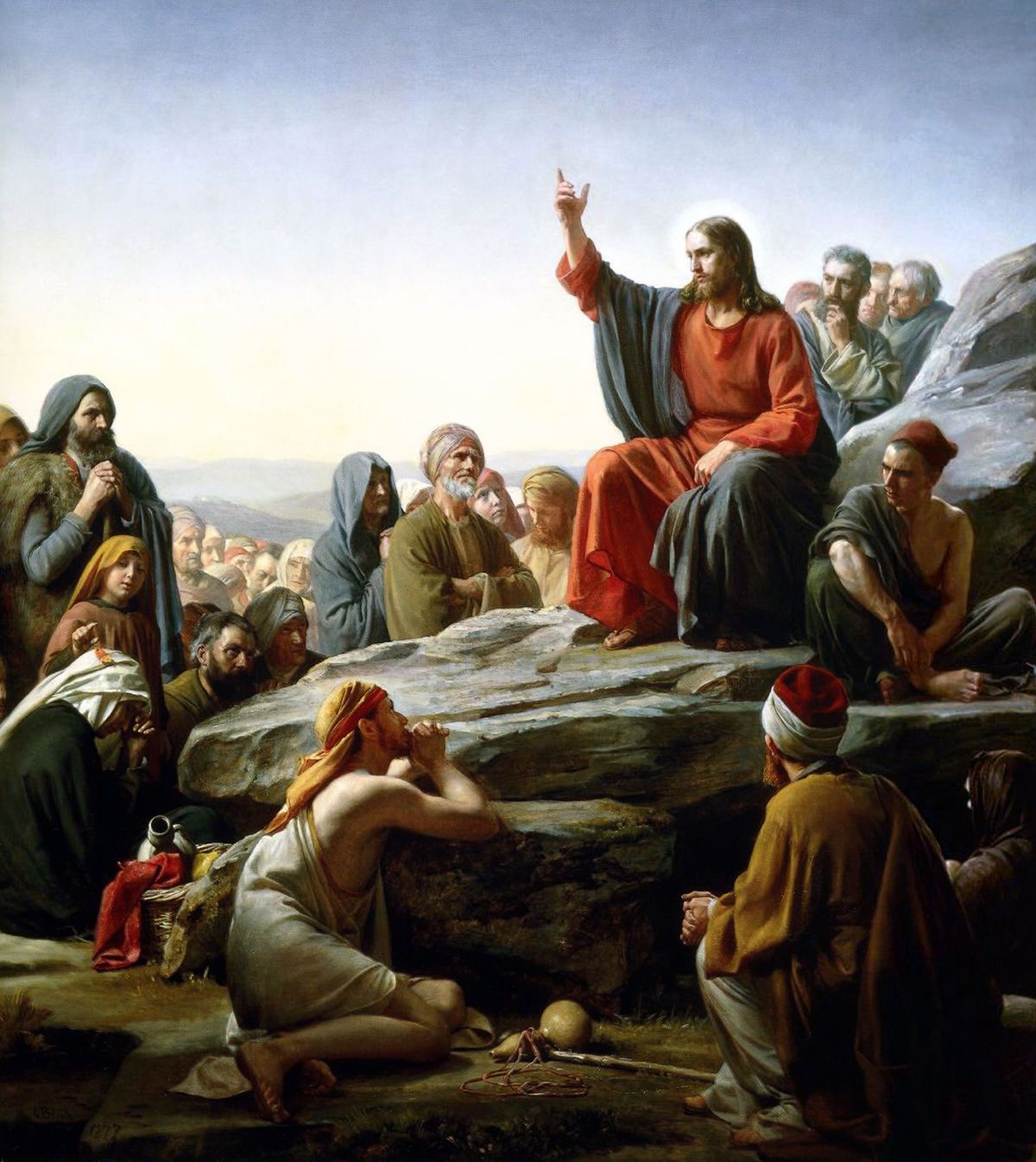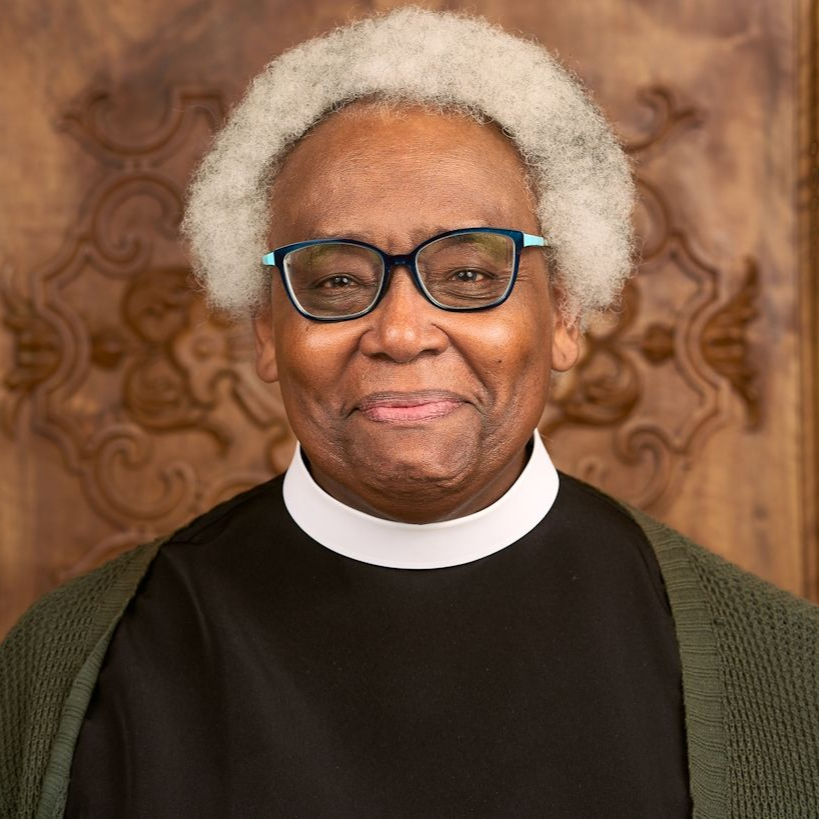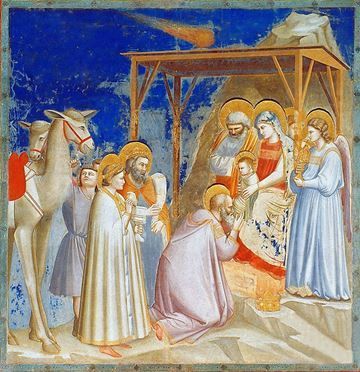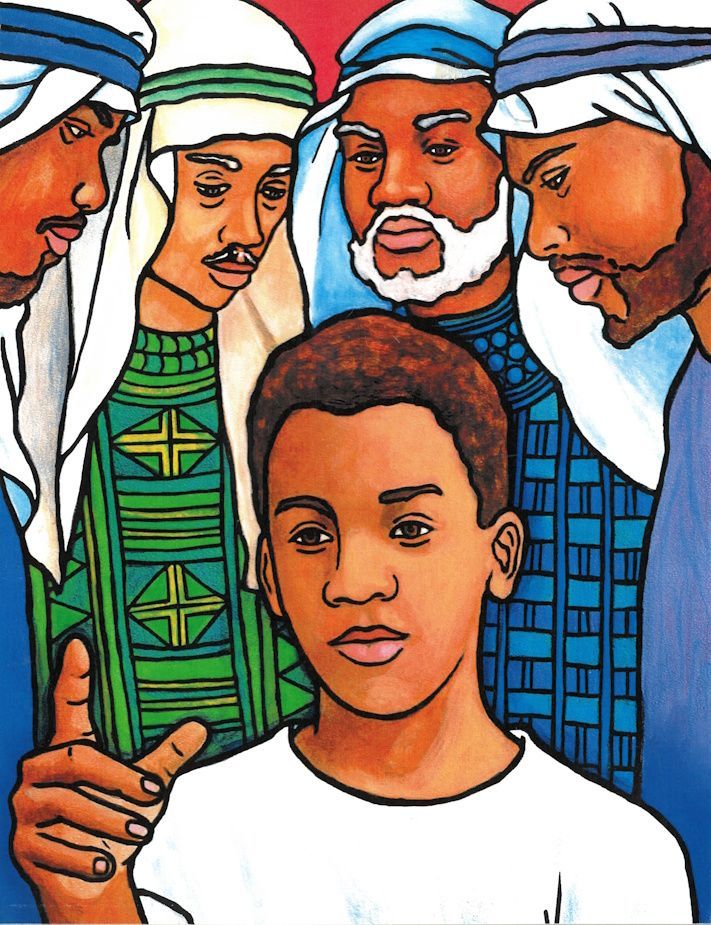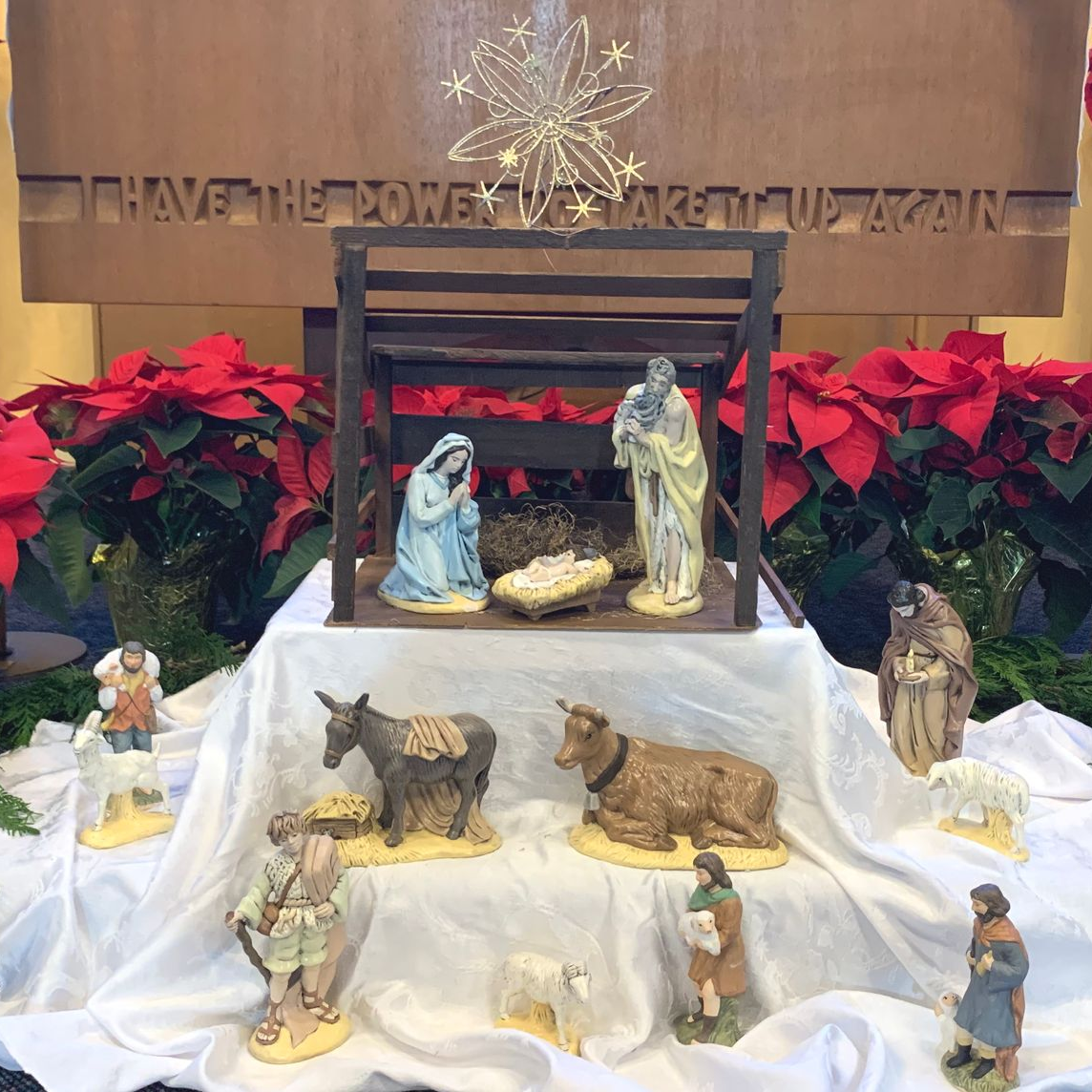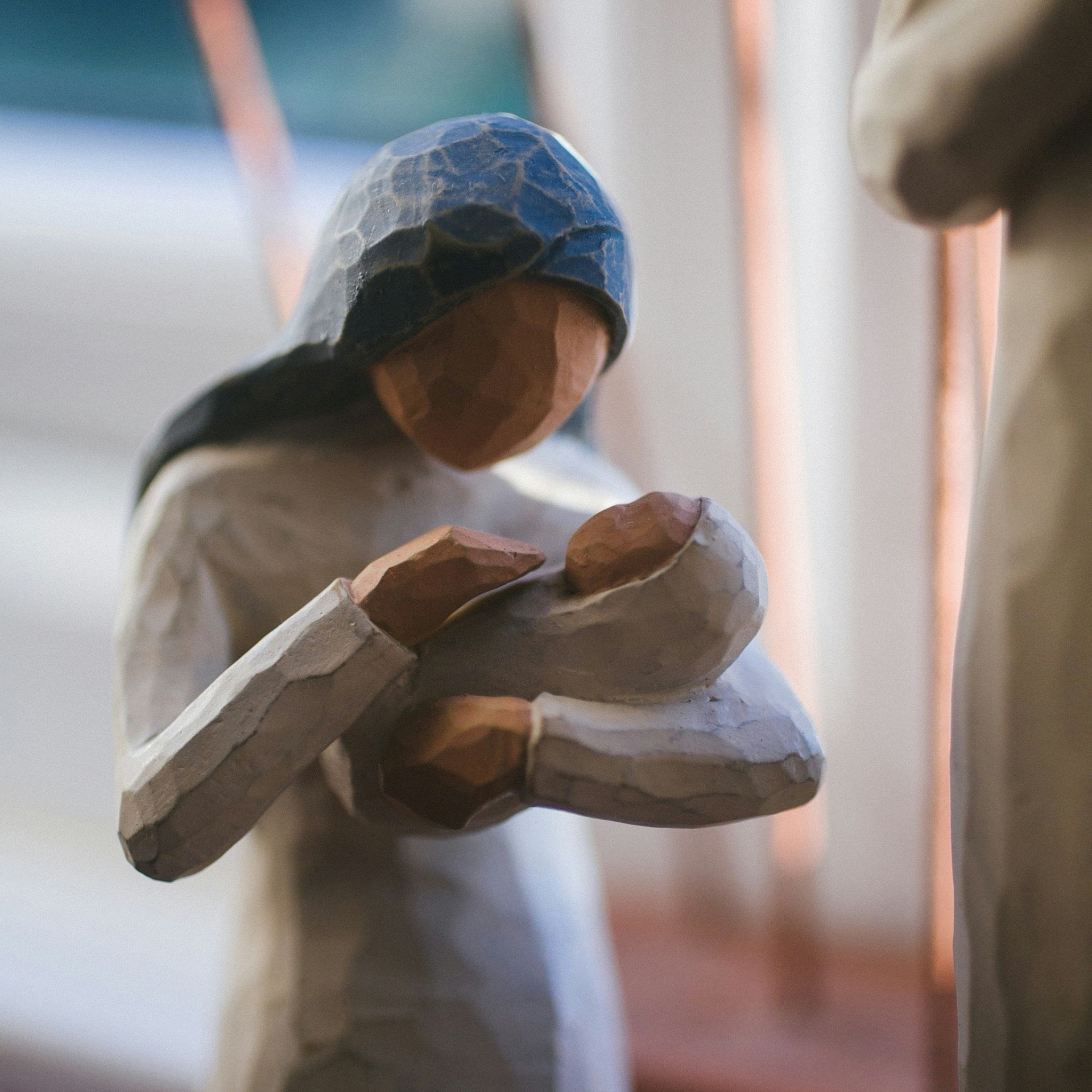Hide and Seek
Sermon: Why would we hide from God? Come out! Come out!
2024-37
sermon preached at Church of the Good Shepherd, Federal Way, WA www.goodshepherdfw.org
by the Rev. Josh Hosler, Rector
Third Sunday after Pentecost (Proper 5B), June 9, 2024
Genesis 3:8-15 ; Psalm 130 ; 2 Corinthians 4:13-5:1 ; Mark 3:20-35
The first time I had to go to the doctor’s office for an allergy shot, I did fine. After all, I didn’t know what I was in for, and I trusted my parents.
The second time I had to go to the doctor’s office for an allergy shot, I hid behind a chair. It wasn’t a very effective hiding place.
Sometimes kids hide because they know they’ve done something wrong. That wasn’t the reason for me. I hid because I was afraid of having to do something painful.
Why do you suppose Adam and Eve hid from God?
You know the story, right? The serpent tempts Eve to eat the fruit—no apple mentioned, just some kind of fruit—because it is “to be desired to make one wise.” Who says? Only the serpent. What makes him more trustworthy than God?
Well, this is an etiological fable: it’s not supposed to be historically factual. It’s supposed to help us understand the facts about ourselves. So while we must never expect to find definitive answers to such questions, we do get to play with the story.
What if Adam and Eve had chosen not to hide in the woods? How might the story have gone differently? What if they had said to God, “Here we are! And yes, we ate the fruit. But see, we can explain …” That’s not what happens in the story. Instead we hear that they ate the fruit, realized they were naked, and felt an irresistible desire to hide from God—from whom they had never felt the need to hide before.
Is it because they know they have done wrong? Or is it because they anticipate that they’ll have to go through something painful? Maybe both?
In this story, nakedness isn’t just about having no clothes on. It’s about being exposed before God and having to give an accounting for their actions. It’s also about realizing that the only way forward lies through pain—and not wanting to deal with that.
Now, most folks assume the serpent is Satan, but Satan isn’t even mentioned in the Bible until many books later. Yet, as I said, we do get to play with the story. If you like, Jesus is the offspring of Eve referenced in the narrative. The serpent will strike his heel in crucifixion. Then Jesus will strike the serpent’s head in resurrection! This is a traditional Christian use of the Adam and Eve story. But like my question about Adam and Eve’s other possible options, this, too, is playing with the story to see how it can benefit us.
And it's such a huge story, this story we’re always telling in the church. You can tell it from so many different angles, and oh, how I love to tell the story! Today it’s a story about hide and seek. We hide out of shame, and God seeks to find us and pull us out of shame once and for all. “Where are you?” Sometimes God calls out to me: “Where are you?” When I’m acting in a way that’s contrary to what I know is right: “Where are you?” When I take refuge in negativity, or cynicism, or despair: “Where are you?” When I’m hiding from prayer, hiding from discipline, hiding from doing the next right thing: “Where are you?”
None of us has any need to hide from God—not really. We only think we do because we feel ashamed. And this is why it’s important to differentiate between guilt and shame.
Guilt comes from the feeling of having done something wrong. Our guilt can be misplaced: we may feel guilty over something that was not actually wrong and hasn’t hurt anybody, not even ourselves. But our guilt can also be constructive. God sometimes speaks within us through our conscience, helping us experience guilt so that we can benefit from it. If our hearts are open, guilt leads naturally to confession, learning, and self-correction.
Shame, on the other hand, is never God-given. Shame is imposed on us from outside by the voices of the fearful. Episcopal author and TED Talk veteran Brené Brown puts the difference like this. While properly placed guilt admits, “I did something bad,” shame insists, “I am something bad.”
In today’s gospel reading, Jesus is not dealing in shame. He states clearly: “All people will be forgiven for their sins and whatever blasphemies they utter.” (I don’t know why the word “all” is omitted from our translation, because it’s plainly present in the Greek.) But then Jesus adds a stark warning: “Whoever blasphemes against the Holy Spirit can never have forgiveness, but is guilty of an eternal sin”!
Is Jesus trying to shame the scribes for accusing him of being in league with demons? I don’t think so. I think he’s trying to give them a shot of clarity. “You think I recruit demons to cast out demons? If so, that means that the whole demon world is in disarray, fighting among themselves. Excellent news! But,” Jesus adds, taking his tongue out of his cheek, “if you really can’t see that getting rid of demons is a good thing, then you’ve got a much bigger problem on your hands. You’re relabeling good as evil, which means you’re hiding from goodness itself! How can you ever get yourselves out of that fix?”
We see this in the present day, too, whenever a person puts authority and trust in doers of evil and calls the evil good. Then they immunize themselves from actual facts so they never have to withstand the pain of being corrected and having to change and grow.
I think this is far worse than what Adam and Eve did. Adam and Eve hid in their shame and fear—but when the source of all life called out to them, at least they came out and faced the consequences. After all, now they knew the difference between good and evil.
The scribes in this story, on the other hand, are determined never to feel guilt—never to admit they could be wrong about something. Like Adam and Eve, they have the ability to tell good from evil … but they’re choosing not to use it! So what they think is piety becomes willful ignorance—and yes, this hurts real people in the real world.
Forgiveness and new growth become possible once we get outside ourselves and into vulnerable relationship with others. Jesus wants these scribes to hear: If you have become so hardened and afraid that you reject healing for yourselves and don’t want to see others healed either … what hope can there be for you?
This is Pride month, and the whole concept of Pride is about no longer hiding and no longer being ashamed. There’s a certain amount of defiance in this: “I don’t care what the consequences of this are anymore, because hiding was no kind of life!” This is why it’s called “coming out.” The pride in question is fundamentally about the risks of dignity. If you’ve been in hiding and then risked everything to come out—and you’re still alive—good on you. Be proud of all that you’ve endured and conquered.
I frequently hear people talk about coming out, only to be rejected by their families and churches. And then I hear that some other community accepted them. Jesus typically brings hope and healing through a community of people. But so many of our churches have refused to admit they were wrong that Jesus is forced to heal outside the church.
Here’s an example. Lambert House is a community center for LGBTQ+ youth. Real healing happens in this group. It is a helpful community for queer kids with supportive parents, and it also becomes a kind of “chosen family” for young people whose biological families have rejected them. While their Seattle headquarters is undergoing renovation, Lambert House will be temporarily housed at St. Mark’s Cathedral.
Now, you and I may rejoice at this pairing, but it’s likely to be an uneasy one. That’s not because our fellow Episcopalians don’t want Lambert House, but because the youth will have a hard time trusting the church not to victimize them. Many of them have never met a Christian they didn’t have real cause to fear.
I believe that Jesus is at work through Lambert House. “Chosen family” is another theme of today’s gospel reading, after all! Jesus supports and strengthens the ad hoc families that develop based on love and not just genetics. Yet Jesus doesn’t insist on taking credit for this. He’s not into manipulating people.
Still, I would love to make clear to these young people that the church is also a form of “chosen family”—I’ve seen it so many times! Those whose connections with their families of origin are weak or strained can find in the church the family they never had, and those connections can build us up for the rest of our lives. Christian family should be primarily and especially available to those whose blood families have rejected or drifted away from them.
When new families form like this, it’s a little like Jesus healing people on the sabbath: it’s not the pattern historically approved by the culture, so some people immediately write it off as wrong. But they’re refusing to observe what is clearly good: healing from shame. New life. Joy. Generative love! There is no legitimate way to paint these things as demonic.
And this is how you can spot the Holy Spirit at work in the world everywhere: the self-assured are called up short and need to admit they were wrong, and those they picked on are being privileged and honored. I see the fingerprints of the Holy Spirit all over this month’s Pride celebrations.
You can look at your own life, too. How are your wounds being healed? Not through your own piety and holiness, but through the love of those who understand where you’ve been—a family that may be unofficial and messy and weird, but which knows who you are and where you’ve been and consistently holds patient space for you to grow into. These are the ones who call to you in your hiding place in a voice touched by that of God: “Where are you? Come out! Come out! Come live in love with us!”
When the church is doing it right, we help people experience God’s unconditional love and acceptance of them. Where people have actually done wrong, we make space for their guilt and repentance—carefully, because we must never shame those who are sincerely trying to grow. Where people have been wronged, we make space for them to heal—gently, gently, because the church doesn’t manage that healing. Only the Holy Spirit can do that.
The long-range project of the church is that every one of us can be healed and then also become a healing presence for others—a catalyst for human thriving. Have you been hiding? The eternal love at the heart of creation is seeking you—calling out to you—“come out!”




